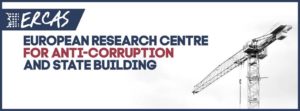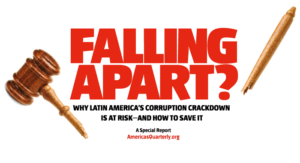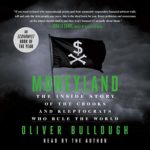We should not be surprised at the increased distance between citizens and democratic institutions given the prevalence of corruption, observers suggest.
“In too many countries we are witnessing corruption or unethical behaviors by the very persons who are in charge of our public institutions,” said Marin Mrčela, president of the Group of States against Corruption of the Council of Europe (GRECO). “This lowers trust in and the respect for such institutions which, in turn, erodes democracy and the rule of law,” Mrčela added in comments to mark International Anti-Corruption Day.
 The adoption of the United Nations Convention against Corruption, the world’s only legally binding universal anti-corruption instrument, without opposition from any member states signaled the end of moral relativism in governance – in theory, said Alina Mungiu-Pippidi, author of “Controlling Corruption through Collective Action,” Journal of Democracy (Jan. 2013).
The adoption of the United Nations Convention against Corruption, the world’s only legally binding universal anti-corruption instrument, without opposition from any member states signaled the end of moral relativism in governance – in theory, said Alina Mungiu-Pippidi, author of “Controlling Corruption through Collective Action,” Journal of Democracy (Jan. 2013).
But the transition from norm to practice has been rare and most of world remains particularistic, with governance marred by corruption, favoritism and nepotism, despite the billions spent on good governance by the US and the European Union (the EU invested one billion Euros on rule of law in Turkey alone). Perversely, the greatest disasters occurred in states where the West had most leverage, including Kosovo, Bosnia, Moldova and Turkey, she said, delivering this year’s Seymour Lipset Lecture.
 Though Guatemala has for years been plagued by government corruption and widespread violence, there is an uplifting story in the unprecedented mobilization of its people to take action against corruption, including Asociación Civil Foro de Justicia Ambiental de Petén, Acción Ciudadana, and Jóvenes Contra la Violencia Guatemala, all profiled in the video above – Guatemala: A Grantee Spotlight– exploring the work of several National Endowment for Democracy grantees. The NED supports the work of many courageous groups & individuals who expose corruption at the highest levels, in turn risking their careers, their freedom, & their very lives. #UnitedAgainstCorruption ow.ly/ncDv30q0j8K #NEDemocracy
Though Guatemala has for years been plagued by government corruption and widespread violence, there is an uplifting story in the unprecedented mobilization of its people to take action against corruption, including Asociación Civil Foro de Justicia Ambiental de Petén, Acción Ciudadana, and Jóvenes Contra la Violencia Guatemala, all profiled in the video above – Guatemala: A Grantee Spotlight– exploring the work of several National Endowment for Democracy grantees. The NED supports the work of many courageous groups & individuals who expose corruption at the highest levels, in turn risking their careers, their freedom, & their very lives. #UnitedAgainstCorruption ow.ly/ncDv30q0j8K #NEDemocracy
Corruption undermines confidence in institutions, threatens #humanrights protections, and destabilizes. Consequently, the National Endowment for Democracy supports many groups and individuals exposing corruption at the highest levels.
 Analyst Oliver Bullough – the author of Moneyland: Why Thieves and Crooks Now Rule the World and How to Take It Back – discusses how illicit money stolen in one location, laundered through off-shore vehicles, and spent in jurisdictions where it is safe from interference, corrodes democratic & rules-based institutions. @ThinkDemocracy #UnitedAgainstCorruption
Analyst Oliver Bullough – the author of Moneyland: Why Thieves and Crooks Now Rule the World and How to Take It Back – discusses how illicit money stolen in one location, laundered through off-shore vehicles, and spent in jurisdictions where it is safe from interference, corrodes democratic & rules-based institutions. @ThinkDemocracy #UnitedAgainstCorruption
@MirandaOCCRP @OCCRP joined @thinkdemocracy’s Power 3.0 podcast to discuss how cross-border networking of investigative journalists can be an effective tool for countering transnational kleptocracy. #UnitedAgainstCorruption
Tune in to @ThinkDemocracy ‘s Power 3.0 podcast episode with featured guest @TutuAlicante @EGJustice for insights into how kleptocracy in #EquatorialGuinea contributes to poverty and repression at home and democratic corrosion abroad #UnitedAgainstCorruption







